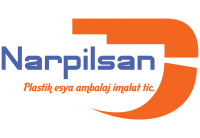Tele-engagement also creates opportunities to counter traditional barriers to family involvement in care (see Baker-Ericzén et al., 2013) that can be protocolized and tested. For example, it offers features that protect family confidentiality, which could soften stigma-related barriers that dampen trust in providers (Livingston & Boyd, 2010). It permits family members to join “on the spot” for parts of tele-sessions, alleviating time and commuting burdens. As a caution, providers should take stock of functional limitations in telehealth options for those families with unreliable access to required technology platforms. For instance, self-esteem and resilience also mediate how well individuals cope with recovery demands.

Importance of communication during recovery
Addressing and transforming these roles is essential for the individual’s overall well-being and long-term success in overcoming addiction. Supportive family relationships can significantly boost Halfway house self-esteem and encourage engagement in treatment. Studies show that individuals with strong family backing have higher completion rates of treatment programs. Conversely, dysfunctional family roles can hinder recovery, emphasizing the importance of establishing healthier dynamics and open lines of communication during the recovery process. Many families grapple with misconceptions about addiction, viewing it primarily as a moral failing rather than recognizing it as a complex medical condition. This narrow perspective can severely impede the recovery process and damage familial relationships, which are crucial in the support system for individuals struggling with addiction.
- Family therapy sessions can help resolve dysfunctional family dynamics that affect recovery.
- Research from Harvard Medical School and Boston Children’s Hospital can also offer valuable insights.
- Participating in family therapy or support groups can educate family members about addiction, helping them transition into healthier roles.
The benefits of a holistic approach to addiction treatment
Whether it’s 24 hours sober or completing a treatment program, https://levelklinika.hu/100-most-inspiring-addiction-recovery-quotes-8/ recovery milestones matter. Positive reinforcement helps rebuild self-esteem and reminds your loved one that progress—however small—is worth celebrating. Addiction significantly affects the entire family unit, often creating a cycle of dysfunction that can lead to long-term consequences for all members involved. By finding the right resources, therapist, and treatment, it’s possible to help your loved one overcome an addiction.

How Can Families Help? A Guide to Support for Loved Ones
The goal of this conjoint approach to screening is to increase the likelihood of case detection and set the stage for family involvement in subsequent stages of the continuum. Evidence suggests that parental reports are fair-to-good proxy measures of youth substance use behavior (McGillicuddy et al., 2012), though they typically underestimate to some degree (Fisher et al., 2006). Parental report may be particularly useful when youth have minimized self-report of use or impairment. Ideally, family screening tools could help to triage youth more accurately into risk categories and increase early identification of youth who have initiated SU. Given the paucity of well-validated family screening tools, identifying and validating such measures is a priority to promote family involvement in the screening stage of the continuum.

The most recent annual survey of SUD provider practices (SAMHSA, 2019) does not list any clinical or therapeutic approach that is fundamentally family-based. This omission acknowledges that although most providers purport to involve families in routine programming, evidence-based family approaches are not widely practiced. To be fair, SAMHSA’s (2020b) comprehensive roadmap makes extensive recommendations for involving families in SUD treatment. This shift can be greatly facilitated by training providers to recognize and address stigma and unconscious biases about youth SU, and by fostering provider comfort in speaking with families openly about SU. In doing so, providers will inevitably come to understand family involvement as routinely beneficial rather than detrimental to recovery, a premise from which more effective interventions and family support in addiction recovery supports are likely to emerge (Heru, 2015). Family support is more than advantageous; it can profoundly affect mental health outcomes for those in recovery.
